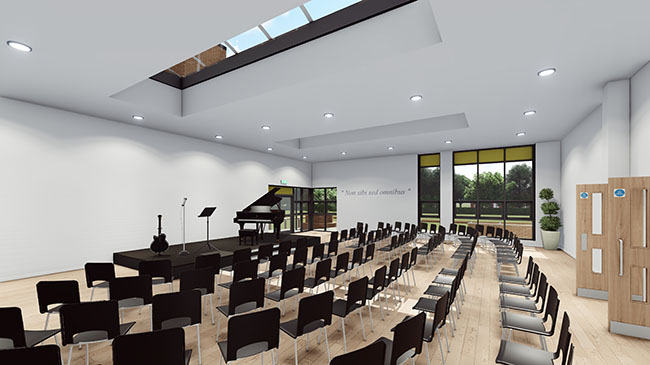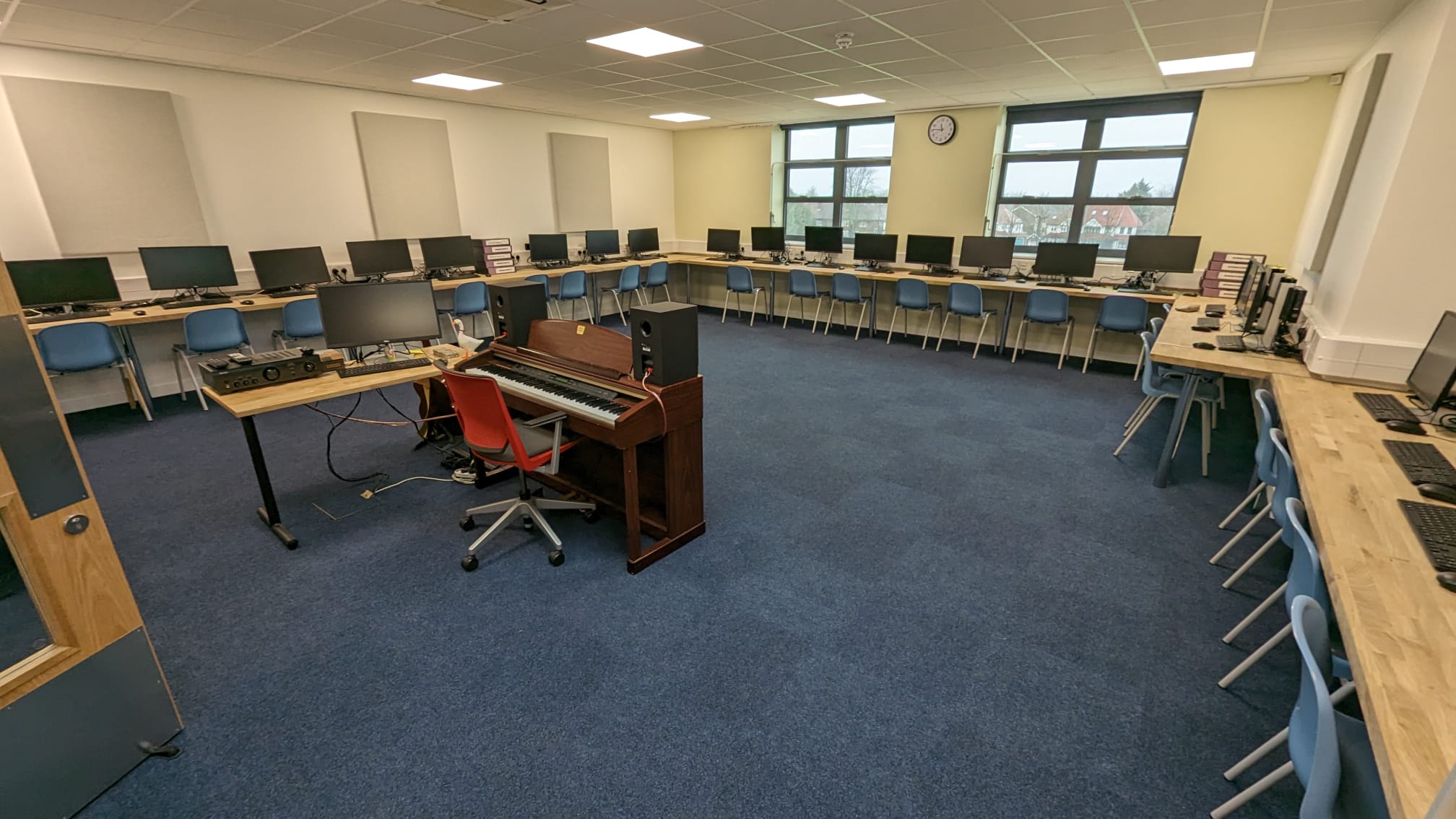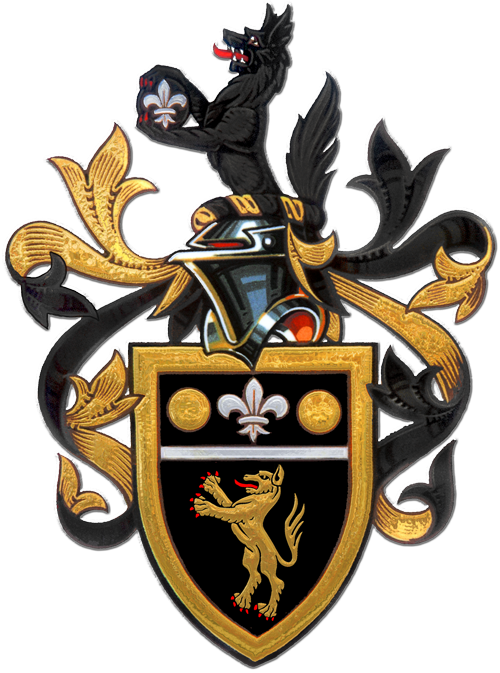Music
Our music curriculum embeds a deep knowledge of the Western classical tradition, but also equips students with the skills to analyse and compose music from a wide range of musical cultures. Students at Wilson’s understand traditions, styles and genres that are local and global, notated and aural, and that focus on specific and contrasting musical parameters and musical techniques.
Many pupils join the school as talented musicians, but our flagship Year 7 Instrumental Programme enables every Wilsonian to discover hidden talents! Every pupil learns to play an instrument entirely new to them when they join the school, and grapples with the technical and expressive challenges of performing music as both a soloist and as part of a large ensemble. With the collective endeavour of performing as a wind band or choir within the first term of starting at Wilson’s, many of our students commit to musical performance as a significant part of their time at the school. To perform music is to embody in a variety of ways the Wilson’s motto ‘non sibi sed omnibus’ (‘not for oneself but for all’), and the Music Department prides itself on realising the creative and collaborative potential of our students across its curricular and co-curricular provision.
For more information about any aspect of our music department, please visit our popular microsite where you can explore past events, find out more about peripatetic lessons, and check for updates on everything from our House Music competition to upcoming concerts.
We have always had ambitious development plans for music. The latest, informed by the national plan for music education, can be found here.
Teaching Staff
- Ms Ableman
- Dr Clayden
- Mr Kramer (Year 7 Instrumental Programme Coordinator)
- Mr Lissimore (Associate Head)
- Mrs Straw (Music Technician)
Visiting Music Teachers
- Ms L Ableman (Piano)
- Mr S Ashworth (Piano)
- Mr P Aslangul (Cello)
- Mr I Barcia (Guitar, Director of Guitar Ensembles)
- Ms D Brennan (Voice, Year 7 Instrumental Programme)
- Mr D Cox (Clarinet and Saxophone)
- Mr D Emson-Jukes (Bassoon, Year 7 Instrumental Programme)
- Ms H Dennis (Oboe and Piano, Director of Double Reed Ensemble, Year 7 Instrumental Programme)
- Mr N Franks (Flute, Director of Flute Ensemble, Year 7 Instrumental Programme)
- Mr J French (Percussion, Director of Percussion Ensemble, Year 7 Instrumental Programme)
- Mr C Kimber (Percussion)
- Ms C Kwan (Piano)
- Mr J Marshall (Trumpet, Year 7 Instrumental Programme)
- Mr D Molyneux (Guitar)
- Mr M Robbins (Voice)
- Mr P Sanders (Clarinet and Saxophone, Director of Clarinet Ensemble, Year 7 Instrumental Programme)
- Mr T Scaife (Brass, Director of Brass Ensemble, Year 7 Instrumental Programme)
- Ms C Taylor (Violin and Viola)
- Mr T Weymes (Director of Choral Music, Year 7 Instrumental Programme)
Our Facilities
Opened in 2023, the Britton Centre is home to our Music Department. With a recital room, a sound recording room, three large music classrooms and nine sound-proofed music practice rooms.
All three classrooms are equipped with computers for composition (software includes MuseScore 4 and Sibelius for notation and FL Studio), pianos and drumkits, and even a mini musicology library. Our Recital Room is home to two grand pianos, a harpsichord, and an impressive array of percussion instruments, including a marimba, a vibraphone, a bass drum, and a complete set of four timpani.
Key Stage 3
No matter the musical experience our students bring with them when they arrive at Wilson’s, all students have the opportunity to thrive in the music classroom, and in musical contexts and through musical endeavours far beyond.
There are two key strands to the Key Stage 3 music curriculum at Wilson's: classroom lessons, during which students develop their knowledge and understanding of a range of musical styles, and the Year 7 Instrumental Programme. The Year 7 Instrumental Programme is a highly innovative scheme designed to give all students first-hand experience of expert practical tuition. In small groups, every Year 7 student receives tuition for voice or one of the following wind or brass instruments from a specialist teacher: flute, oboe, clarinet, bassoon, trumpet, French horn, trombone, or percussion. Students are provided with instruments and other necessary equipment, undertake dedicated practice regimes, and perform with members of their cohort in showcase concerts. As they develop their performance skills, as soloists and ensemble players, the students also build up their resilience and perseverance, teamwork skills, organisational capacities, and their listening skills. The Year 7 Instrumental Programme is a highly distinctive feature of the curriculum at Wilson's and something of which we are very proud.
The Year 7 Instrumental Programme helps lay the foundations of the students’ practical and analytic work, building their understanding of Western notation and theory through termly projects. The backbone of each project is a composition task, where students use staff (using the software notation MuseScore) and other relevant notations (such as DAW) appropriately and accurately in a range of musical styles, genres and traditions, and learn to extend and develop musical ideas by drawing on a range of musical structures, styles, genres and traditions. To embed technical understanding and expressive composition skills, students learn how to identify aurally and use the inter-related dimensions of music expressively and with increasing sophistication.
Students put their knowledge and skills into practice by undertaking a range of theory and listening activities throughout each project, listening with increasing discrimination to a wide range of music from different traditions and cultures. As students develop their skills in music analysis and communication, students learn: about the circumstances that lead to the creation of both musical traditions and specific pieces of music; to identify musical techniques and apply specific terminology; and make informed judgements about their musical encounters.
The projects across Key Stage 3 grow in musical sophistication and complexity, and compositional freedom, where students learn how to replicate theoretical principles in new contexts and express their ideas in music that they can share with others.
The projects are detailed in order below:
Year 7:
Introductory Unit: The Musical Elements
Autumn: Rhythmic Textures
Spring: Fanfares
Summer: The Blues
Throughout the year: Year 7 Instrumental Programme
Year 8:
Autumn: Theme and Variations: Composition and Analysis
Spring 2025: The Blues; Spring 2026: Minimalism at the Movies
Summer: Pop Hooks
Key Stage 4
The Key Stage 4 Programme of Study is designed to map out both the knowledge and skills needed to achieve highly in the Pearson Edexcel specification for GCSE Music and the GCSE Plus Programme. The GCSE is comprised of three components: performing, composing, and listening and appraising. In order to become an effective performer, a convincing composer, and an analytic appraiser, students must engage with music, musical thought, and musical activities far beyond those specified by the board. Indeed, our Programme of Study is designed to develop students’ musicality in all dimensions.
Our GCSE musicians are given a great many performance opportunities, as well as the chance to see professional ensembles in action, during a series of concert visits to the South Bank Centre, the Barbican, and Cadogan Hall. It is expected that GCSE Music students would take part in a number of the ensembles run in the Music Department.
The Key Stage 4 curriculum is delivered in half termly projects focused on a composition task or specific set work, with additional activities and tasks interspersed across the terms to ensure that contextual and technical knowledge is embedded and to develop students’ skills in making musical arguments and judgements. Performance tasks comprise in-class rehearsals and concert or in-class performances across a number of weeks.
The projects are detailed in order below:
Year 9:
Composition: Pop Songs
Set Work/Listening and Appraising: H Purcell, ‘Music for a While’
Performance: Solo Recital Evening
Set Work/Listening and Appraising: S Schwartz, ‘Defying Gravity’ (from the album of the cast recording of Wicked)
Composition: Techniques Carousel: Minimalism, The Blues, String Quartet Arrangement
Performance: Ensemble Performance (in class)
Set Work/Listening and Appraising: J Williams, Main Title/Rebel Blockade Runner (from the soundtrack to Star Wars IV: A New Hope)
Composition: Programme Music
Year 10:
Set Work/Listening and Appraising: L van Beethoven, Piano Sonata No.8 in C minor ‘Pathétique,’ first movement
Composition: Romantic Piano Composition
Set Work/Listening and Appraising: Queen, ‘Killer Queen’ (from the album Sheer Heart Attack)
Composition: Vocal Composition
Set Works/Listening and Appraising: Spalding, ‘Samba Em Preludio’ (from the album Esperanza); Afro Celt Sound System, ‘Release’ (from the album Volume 2: Release)
Composition: Fusion
Performance: Ensemble or Solo (in class and in the Chamber Concerts)
Year 11:
Set Work/Listening and Appraising: J S Bach, Brandenburg Concerto No.5 in D major, third movement
Composition: Brief composition (NEA requirement)
Performance: Solo Recital Evening (NEA requirement)
Composition: Free composition (NEA requirement)
Performance: Ensemble (NEA requirement)
Key Stage 5
Each year, a small number of our GCSE cohort decide to continue their musical studies in the Sixth Form. For some students, the A level Music course at Wilson's represents an active preparation for the pursuit of further musical training and subsequent professional musicianship. For others, it is a highly stimulating contrast to other A level subjects. Students pursue the Pearson/Edexcel specification (see details below). As with our GCSE musicians, our A level students are given all sorts of exciting opportunities to experience live musical performance, to perform themselves in various settings, and work with professional musicians in the development of their compositional skill.
A Level (Pearson Edexcel)
Unit 1: Extended Performance
This unit gives students the opportunities to extend their performance skills as soloists and/or as part of an ensemble. Teachers and students can choose music in any style. Any instrument(s) and/or voice(s) are acceptable as part of a assessed performance of a balanced programme of music which lasts for at least eight minutes. Notated and/or improvised performances may be submitted.
Unit 2: Composition and Technical Study
This unit has two sections: composition and one composition assessing compositional technique. The composition section further develops students' composition skills, leading to the creation of a final four-minute piece in response to a chosen brief, or a free composition.
The composition assessing compositional technique Must be at least one minute in duration, unless the chosen brief specifies a longer minimum duration. Total time across both submissions must be a minimum of six minutes.
Unit 3: Appraising
This unit focuses on listening to music, familiar and unfamiliar, and understanding how it works. Set works from the anthology, using different selections from those studied across the two years, provide the focus for much of the unit. It is recommended that students familiarise themselves with each work as a whole, before concentrating on important musical features, context and/or elements of continuity and change. Students should also listen to a wide range of unfamiliar music related to the areas of study. They should learn how to compare and contrast pairs of excerpts, contextualise music and identify harmonic and tonal features. The two sections are divided as follows: Section A: Areas of study and dictation; Section B: Extended response.
Enrichment
For full details regarding the numerous co-curricular opportunities offered to students at Wilson’s, please visit our site to listen to recordings and see our most up-to-date Co-curricular Timetable.
Further Links
Music theory support
Sibelius support
BBC Radio 3
Wilson's School Music Site
Instrumental Tuition Timetables
Please find the timetables here.
Examples of marked work
See below for examples of marked work which demonstrate the level of work and ‘green pen’ engagement required to maximise progress in each Key Stage. Whilst we expect students to engage with this positively and if necessary, seek clarification from teachers, please be assured that in-lesson support is always available.





